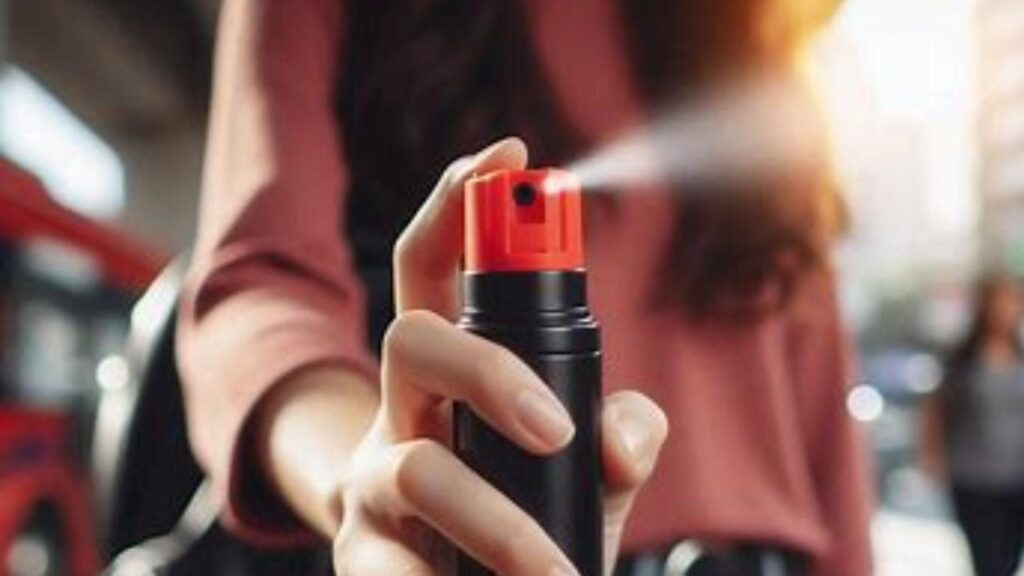Table of Contents
- Penalties Varying by State Jurisdiction and Legal Definitions
- Detailed Examination of Criminal Charges and Fine Structures
- Understanding the Role of Intent and Circumstances in Sentencing
- Best Practices to Avoid Legal Consequences When Carrying Pepper Spray
- In Conclusion
Penalties Varying by State Jurisdiction and Legal Definitions
The consequences for improper use of pepper spray can differ dramatically due to the unique legal frameworks established by each state. Some states consider the misuse of pepper spray a misdemeanor, resulting in fines, community service, or short-term jail sentences, while others impose more severe penalties if the misuse escalates into assault or causes significant harm. Because the definition of “misuse” can range from unauthorized possession to aggressive deployment against non-threatening individuals, understanding local laws is essential for compliance and defense. For instance:
- California may treat pepper spray misuse primarily as a misdemeanor with potential restraining orders if used excessively.
- New York might classify improper usage as an aggravated offense under certain circumstances.
- Texas law distinguishes between lawful self-defense and criminal use, leading to varied penalties accordingly.
Legal definitions related to pepper spray possession and use also impact sentencing significantly. States with specific statutes outlining permissible use tend to enforce stricter consequences when those boundaries are crossed. For example, using pepper spray during a personal dispute rather than self-defense can elevate charges to assault or battery, with penalties including:
- Increased fines that may surpass several thousand dollars.
- Probation or mandatory anger management classes.
- Extended jail or prison time in cases of repeated offenses or injury inflicted.
Thus, compliance with state-specific definitions and restrictions is paramount to avoiding harsh legal repercussions.
Detailed Examination of Criminal Charges and Fine Structures
When it comes to the misuse of pepper spray, states have established varying degrees of criminal charges that can be quite complex. In some jurisdictions, wielding pepper spray in a reckless or unlawful manner may be charged as a misdemeanor, carrying fines up to $1,000 and potential jail time under a year. Other states treat similar offenses more severely, potentially elevating charges to a felony, especially if the misuse leads to serious injury or is linked to assault. These variations emphasize the legal system’s recognition of pepper spray’s dual nature-as a protective tool and a possible instrument of harm. It’s essential for pepper spray owners to familiarize themselves with local laws to avoid unintended legal consequences.
The fine structures also differ significantly, often reflecting the context and circumstances surrounding the misuse. For instance, fines may be:
- Relatively low for first-time offenders with no harm caused, focusing more on education and warning;
- Heavily increased for repeat offenses or incidents involving vulnerable populations such as minors or the elderly;
- Accompanied by mandatory community service or defensive violence education courses in some states to encourage responsible handling.
Understanding the Role of Intent and Circumstances in Sentencing
When it comes to sentencing for the misuse of pepper spray, the intent behind the action plays a pivotal role in determining the severity of penalties imposed. Courts often distinguish between accidents, self-defense, and malicious use. Intent to cause harm or to intimidate typically results in harsher consequences, whereas situations involving unintentional discharge may be met with more lenient measures. The legal system recognizes that context matters greatly, and therefore, a thorough evaluation of the defendant’s mindset and circumstances is essential during sentencing.
Beyond intent, several situational factors influence judicial outcomes, such as whether the misuse endangered vulnerable populations or was associated with other criminal activities. Some common considerations include:
- Use in public versus private spaces
- Previous history of pepper spray-related offenses
- The presence of minors or elderly individuals at the scene
- Whether the spray was used during a protest or altercation
The combination of intent and circumstance creates a nuanced framework around pepper spray misuse, ensuring that punishment aligns with the specific nature and gravity of each case, rather than applying a one-size-fits-all approach.
Best Practices to Avoid Legal Consequences When Carrying Pepper Spray
When carrying pepper spray, adhering to state-specific regulations is paramount to steering clear of legal trouble. First and foremost, familiarize yourself with the allowed concentration levels and the maximum quantity permitted in your jurisdiction. In many states, pepper spray is considered a self-defense tool rather than a weapon, but exceeding legal limits or using it irresponsibly can elevate penalties. Always ensure the product you carry is compliant with local laws, including packaging and labeling requirements.
Key practices to keep in mind include:
- Use strictly for self-defense purposes: Avoid brandishing or deploying pepper spray in situations where a non-violent resolution is possible.
- Store securely: Carry pepper spray in a manner that prevents accidental discharge, especially around children or pets.
- Avoid public carries in restricted areas: Some states prohibit carrying pepper spray in schools, government buildings, or public transportation.
- Maintain possession documentation: If required, keep permits or proof of purchase accessible to demonstrate lawful possession.
In Conclusion
In conclusion, understanding the penalties for pepper spray misuse is crucial for responsible ownership and use. As laws vary significantly from state to state, staying informed about local regulations can help individuals avoid serious legal consequences. Whether for self-defense or professional purposes, always use pepper spray ethically and within the bounds of the law. Staying educated not only protects you legally but also contributes to the safety and well-being of your community.Check Our Other Blogs
- StunGun – Your Trusted Source for Stun Guns, Laws, and Self-Defense Tips
- PepperSprayLaws – Your Trusted Resource for Pepper Spray Information
- StunGunLaws – Your Trusted Guide to Stun Gun Legality and Safety




